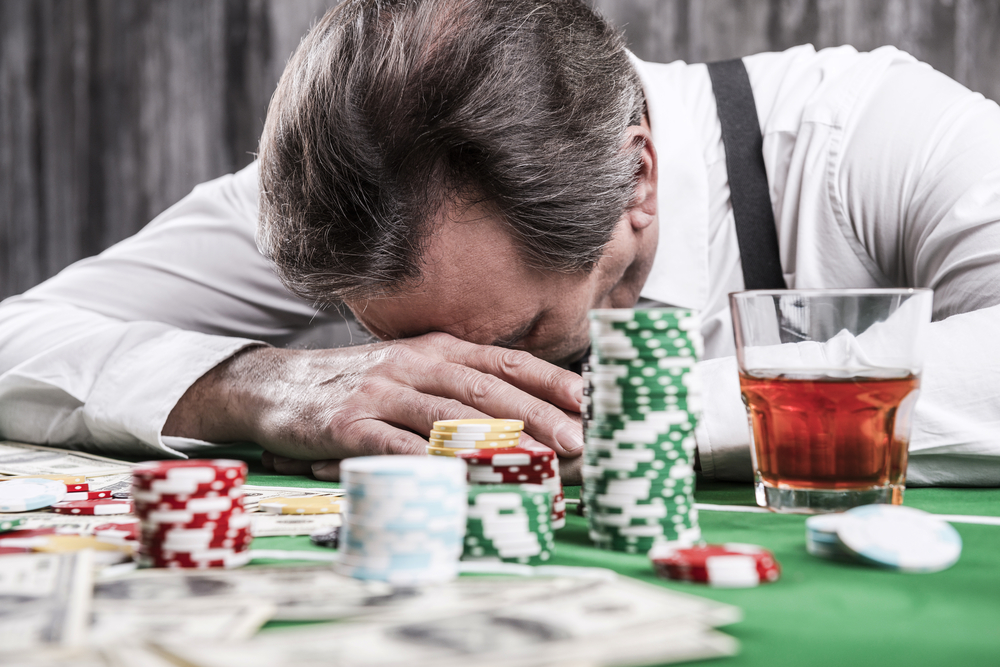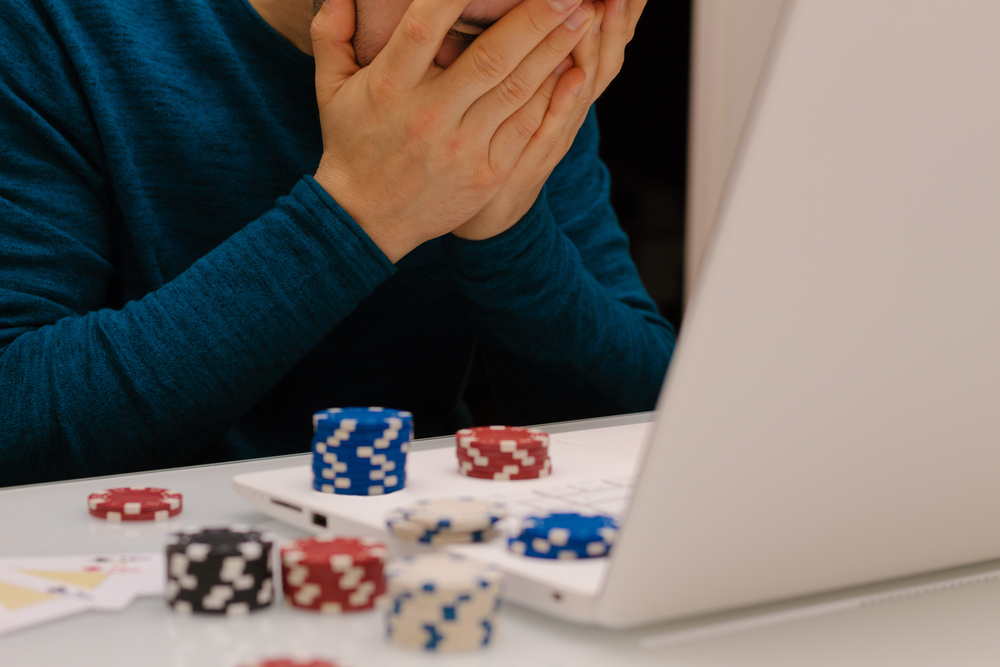High on Drugs, High on Risk: The Impulsive Gambler
Gambling is common in the US and worldwide. People gamble on everything from card games to sports and even casino games. For some, gambling is a harmless pastime; for others, it's quick cash. In moderation, gambling can be a fun activity. However, some people lose control of their gambling and end up being an impulsive gambler (or participating in problem gambling). And the thrill of gambling can be a much greater issue when substances are involved.
What is Impulsive Gambling?
Gambling involves risking something of value to get something of even greater value. As mentioned, people participate in sports betting, card games, etc., for entertainment. However, if a person cannot control their gambling to the level that it negatively affects their lives, they're said to have a gambling problem or impulsive gambling.
Impulsive gambling is a condition where a person cannot control their gambling behavior, despite its negative consequences. As Mayo Clinic puts it, this impulse control disorder is characterized by a persistent and uncontrollable urge to gamble and a preoccupation with gambling even when it interferes with daily life activities.
Gambling, like drugs or alcohol, stimulates the release of dopamine, a neurotransmitter often associated with feelings of pleasure and reward. This can create a cycle where the brain seeks out more of that reward, leading to a desire to gamble more frequently or at higher stakes. When one has a problem gambling, they may continually chase bets that lead to losses. Eventually, they'll use up all their savings and go into debt, trying to pursue a win. They will make the extra effort to conceal their actions and even turn to fraud or theft to support their addiction.
Gambling Addiction and Substance Abuse

Gambling and mental health issues can reinforce each other. This means that a person with a mental health issue may gamble to escape or cope with the signs and symptoms. At the same time, a person with a gambling problem might develop mental health issues due to loss, feelings of shame, etc.
Similarly, gambling addiction and substance abuse have a high co-existence rate. In fact, those addicted to substances or gambling are already predisposed to thrill-seeking behaviors.
According to one study, people diagnosed with impulsive gambling also end up having substance use disorder. This could be due to:
- Environmental factors – with alcohol disorders being found to have the greatest connection to problem gambling. Gambling often happens in casinos where alcohol is served. Besides, gamblers may use alcohol and drugs to celebrate a win, cope with depression after a loss or deal with the shame and guilt of gambling.
- Physiological factors – neuroscience, genetics, and psychology research over the last 20 years show that gambling and drug addiction affects the brain the same way. Compulsive gamblers and those addicted to drugs share some similar genetic predispositions for reward-seeking and impulsivity. They are vulnerable because their brain's reward center is underactive.
- Psychiatric factors – people with gambling and substance use disorders also tend to have higher rates of mental health issues like antisocial personality and ADHD and risky sexual behaviors.
Besides, most casinos in the US offer free drinks for those who spend their money at slots or tables. This is a much bigger problem because, like drug abuse, problem gambling is considered a compulsive behavior.
The Effects of Being High While Gambling
Being high while gambling can have significant effects on a person's behavior and decision-making in the following ways:
- When a person is under the influence of drugs, they may be more impulsive and less able to control their actions. This can lead to riskier bets, larger losses, and criminal behavior.
- Substances can alter a person's perception and judgment, making it difficult to accurately assess the odds or the consequences of their actions. This can lead to unrealistic expectations, chasing losses, and even more reckless behavior.
- Substances can impair a person's ability to remember and learn from past gambling experiences, leading to repeated mistakes and losses, further fueling the addiction.
- The combination of drug use and gambling can be particularly dangerous for those who struggle with addiction. It can create a cycle of risky behavior and lead to financial, legal, and personal problems.

Drugs that Exacerbate Gambling Addiction
While no specific drug causes gambling addiction, certain substances may increase the risk of developing a gambling addiction. Research shows that individuals with gambling addiction commonly abuse substances like alcohol, tobacco, marijuana, and stimulants.
Alcohol and other substances can lower inhibitions and impair judgment, making it more likely for a person to engage in behavioral addictions like gambling. Data from a large study in the US found alcohol addiction to be the most common co-occurring disorder among those with pathological gambling. More than 73% of participants diagnosed with problem gambling had an alcohol use disorder.
Stimulants, such as cocaine and amphetamines, tend to increase feelings of excitement and pleasure, which may make gambling more appealing.
How to Help Cure a Gambling Addict
It can be tough to see a loved one struggle with gambling addiction. But the good news is that with help and treatment, they can go back to leading a healthy lifestyle. Here are a few tips to consider:
- Encourage them to seek professional help: Gambling addiction is a severe problem that requires professional treatment. Encourage your loved one to seek help from a qualified therapist or addiction specialist.
- Provide emotional support: The road to recovery can be difficult and emotional for someone struggling with gambling addiction. Provide emotional support and encourage them to stay strong and committed to recovery. Your loved one can also join support groups like Gamblers Anonymous, which can be a helpful resource for individuals in recovery.
- Avoid enabling behaviors: Enabling behaviors can include giving the person money to gamble or covering up their lost money. Avoid these behaviors, as they can make the problem worse.
- Consider family therapy: Gambling addiction can impact family and friends. Consider family therapy to help everyone cope with the challenges of addiction and work together to support the person in recovery. Depending on your preference, this can either be physical or online therapy.
Remember that many people who develop problem gambling also develop substance use disorders. Neither addiction is easy to manage without professional help, so it's essential to encourage the person to seek help for both issues. At More Than Rehab, we offer treatment for gambling addiction and dual diagnosis, which means addressing both gambling addiction and any co-occurring substance use disorders. We utilize evidence-based therapies such as cognitive behavioral therapy (CBT) to help individuals understand the underlying reasons for their addiction and develop healthy coping mechanisms.